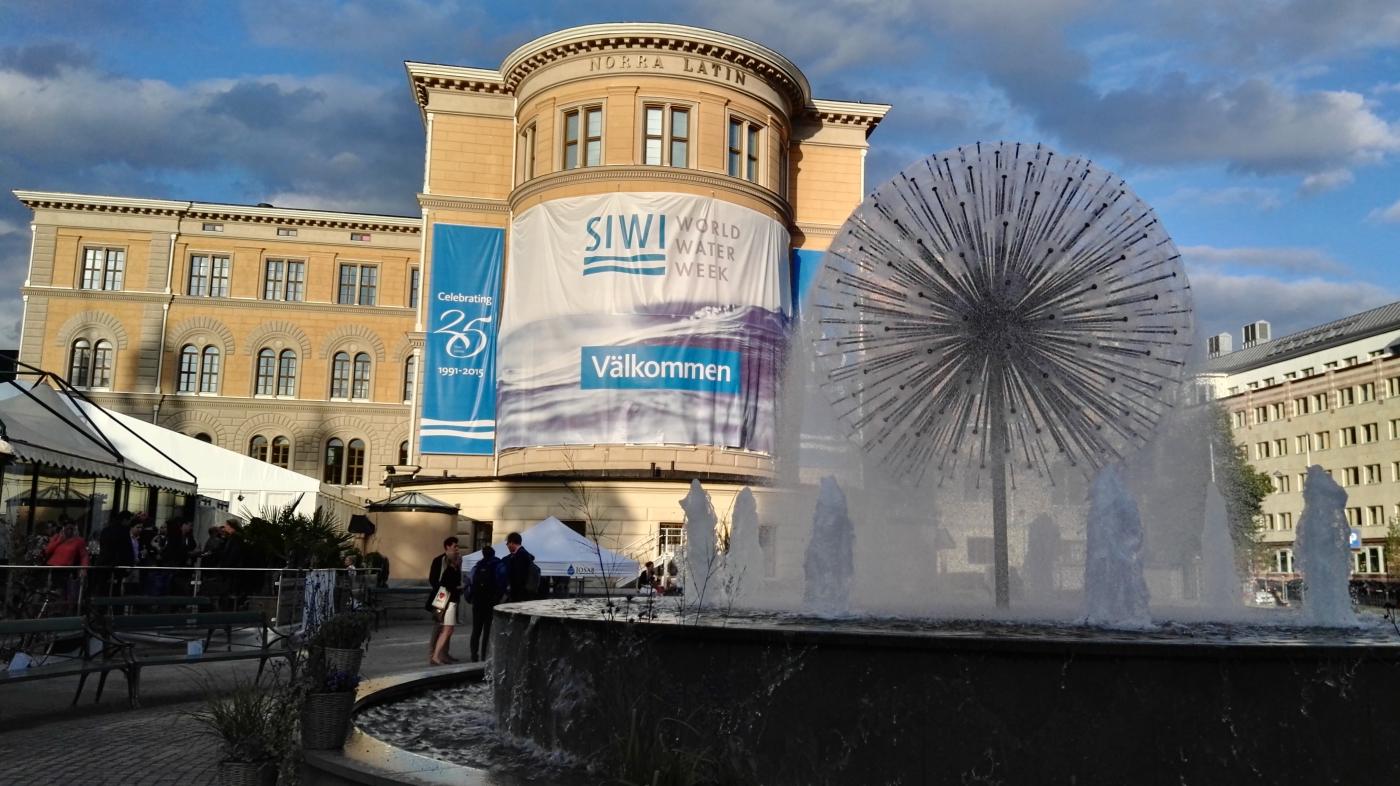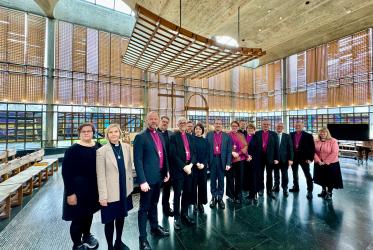The World Water Week is a “stepping stone” in accomplishing Sustainable Development Goals (SDGs) related to water and sanitation – and the faith communities must be actively engaged in achieving this vision, according to Dinesh Suna, coordinator of the Ecumenical Water Network (EWN) of the World Council of Churches (WCC). Suna shared these reflections following his participation at the 2015 World Water Week Stockholm held in Sweden from 23 to 28 August.
The World Water Week in Stockholm is the annual focal point for global water issues, organized by the Stockholm International Water Institute. This year theme was “Water for Development”.
Suna stressed that wider participation of faith-based organizations was needed at the event.
“The workshops could have brought in more faith voices tapping into their potential in helping to solve the global water crisis – given that the United Nations general secretary has particularly recognized the importance of faith communities in strengthening the SDGs,” he said.
Suna added that one significant outcome of the World Water Week discussions was an affirmation that water is a driver for sustainable development and poverty reduction.
He stressed the importance of the close connection between SDG goals and targets related to water. “It was affirmed that ‘we cannot manage what we cannot measure’,” said Suna. “The SDGs have brought back the focus from global to national level of implementations. For an effective implementation, effective monitoring is important, as is the capacity of the stakeholders.”
Speaking about discussions on water and human rights in Stockholm, Suna said the participants agreed that access to safe drinking water is a human right, but the water services often come at a fee or price. “Therefore policy makers must ensure that water remains affordable to all.”
It was emphasized that “water interventions” must have a human face, discerning how water is used and misused as a result of prevailing power structures in societies. The former special rapporteur for the human right to water and sanitation at the UN, Catarina de Albuquerque, who is currently the executive chair of the Sanitation and Water for All Partnership, said, “A country is only as developed as the person with the least opportunity to benefit from that development.”
The World Water Week brought together experts, practitioners, decision-makers, business innovators and young professionals from a range of sectors and countries who had come to Stockholm to network, exchange ideas, foster new thinking and develop solutions to the most pressing water-related challenges.
The Stockholm Water Prize 2015 was awarded to the “water man” of India, Dr Rajendra Singh, for his efforts to bring water to over 1000 villages in India which were reeling under sever water crisis. The Junior Stockholm Water Prize 2015 was awarded to another Indian origin American, Perry Alagappan, for his innovative use of Nanotechnology to filter heavy metals in an affordable and scalable manner.
Next year, the World Water Week will be held from 28 August to 2 September 2016 addressing the theme “Water for sustainable growth”.






